It’s probably no surprise, given my continuing existence, that were I to be given the opportunity to change any of the decisions made regarding my treatment, I wouldn’t alter a thing. However shaky some of the steps may have seemed at the time, and whatever slings and arrows outrageous fortune may have flung at me as a result, it’s impossible to know whether any tiny step off that specific path would have brought me to where I am today.
And I rather like today. Not just because I was on two national news programmes on Tuesday, nominated by Bloodwise to give a patient’s point of view on some striking cancer treatment news… Few viewers will have realised from my brief appearances on 5 News and the BBC News at Ten, though, just why this news sounded like potentially a big deal to me.
I relapsed with acute lymphoblastic leukaemia, reached a point where conventional treatment had failed and turned to an innovative, only partially tested immunotherapy trial to get me into remission, just like the patients in the widely reported trial (“94% of ALL patients given only a few months to live” alive and in remission after 18 months). What’s more, had we made a different choice among my short list of ‘last-resort’ options, I might even have ended up on that trial myself.
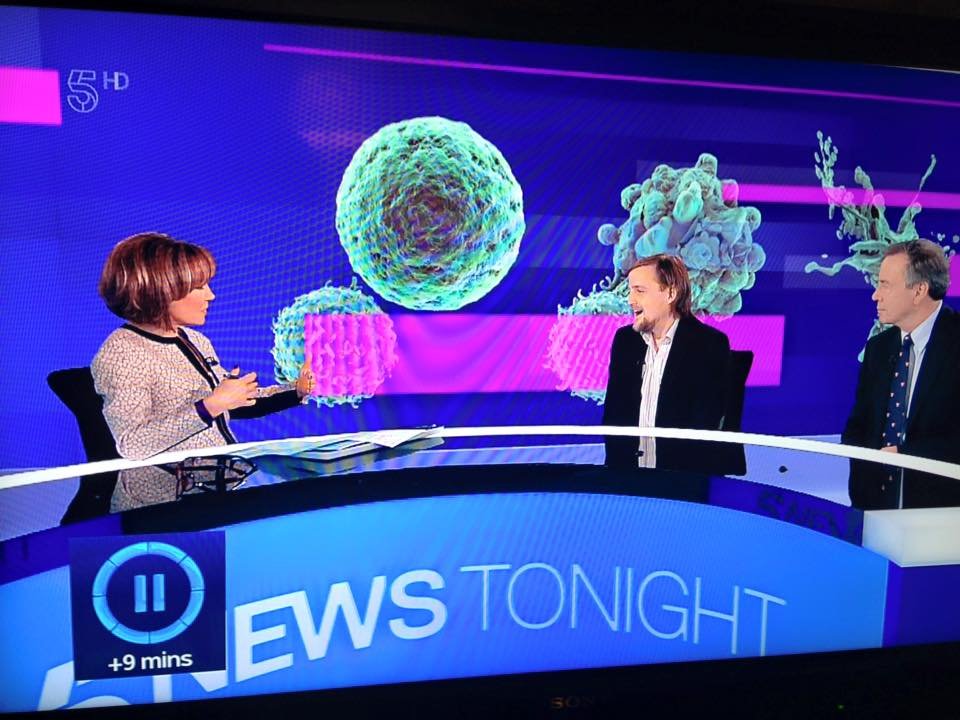
When my ALL relapsed in 2013, a stem cell transplant was always the target and my very best (if not only) hope for sustaining any remission for any more than a few months, and that’s rightly played a leading role in my story. However, it might not even have come into play had I not reached that remission in the first place.
When the regular relapsed-ALL-beating intensive FLAG-IDA chemotherapy failed to banish the lymphoblasts, I was looking at the prospect of living out a version of Einstein’s definition of insanity: having the same chemotherapy over and over again and expecting (or at least hoping for) different results.
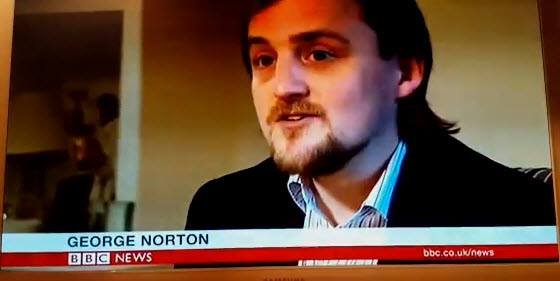
Fortunately, though, the exciting progress of immunotherapy presented another option: monoclonal antibodies whizzing around my bloodstream with a couple of familiar chemotherapy drugs and steroids, targeting the leukaemia. It was rough, but – seemingly against expectations – it worked! I remember two of what were perhaps three other options, all unproven: another, more promising trial in the UK that wasn’t starting for what could have been a critical few months, and volunteering as a guinea pig for some interesting research adapting patients’ own T-cells to attack cancer cells in the USA.
Not only could I have had an excuse for an, erm, holiday (that might be pushing it) to America, but I might also have ended up among the 94% – or, of course, the 6% – headlining global news bulletins this week. Instead, I was sitting in a Channel 5 news studio with newsreader Sian Williams and immunologist Dr John Gribben to give my reaction to the revelation of this news, having been rushed up there as soon as the BBC had finished filming a brief interview with me and complex ‘walking down the stairs and sitting down with my laptop’ passage at home for the News at Ten (yes, I always put on a smart jacket to drink my tea).
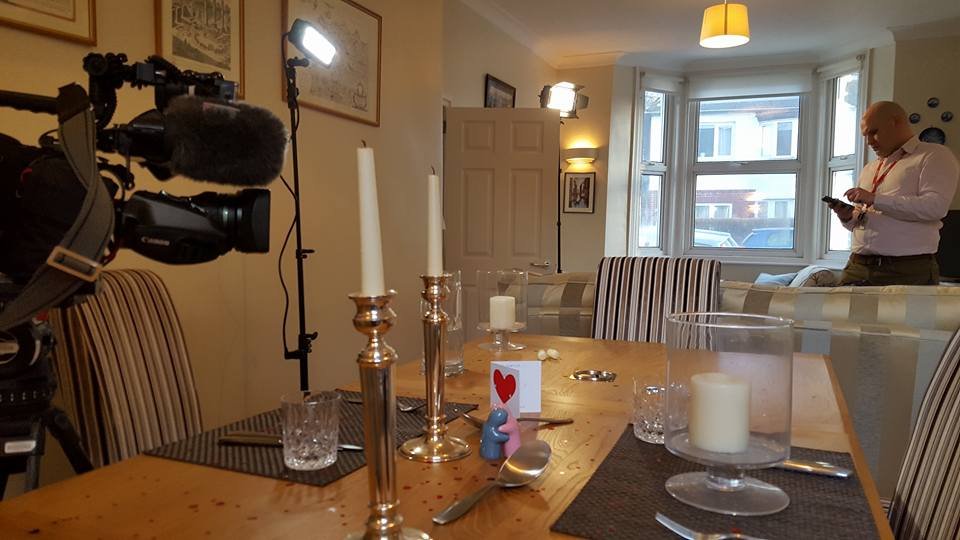
Fortunately I had had a rare haircut and trimmed my beard a few days before, and even tidied the dining/living room for Valentine’s Day: lucky coincidences. It probably worked to my advantage to have the BBC pre-recording first, as I was more fluent and confident about what I was saying by the time I got to the 5 News studio, where I wouldn’t have the luxury of multiple takes…
I had read the news story that morning with considerable interest, but little did I know I’d be explaining how I felt it about on live television later that day. Once the interviews were on the cards, I was almost so busy keeping track of the logistics of the day that there was little time to really get my thoughts in order. I like to think I came up with honest, coherent answers in front of the cameras, but in a way, my words were not the most important thing.
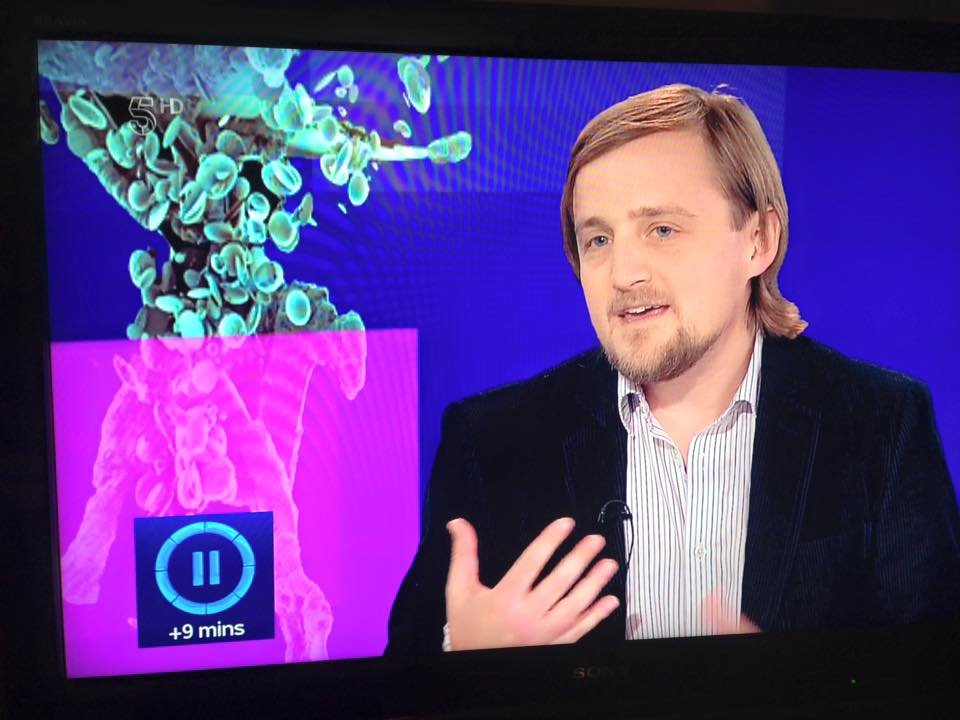
I was there to put a human face on the statistics (even if I wasn’t one of that specific 94%); to help viewers jump from the complex science (represented by scary 3D cells floating around behind my head on 5 News) to what ‘surviving’ cancer really means. My excitement at the research was as much to do with the large number of individuals to whom the trial had already given another chance at life as it was about the even larger number who might benefit in the future. 94%? I imagine 33 real-life human beings who have been able to live at least another year – not to mention their friends and family.
I know something about what it’s like to lie in a hospital bed when conventional treatment has failed. When the alternative is to ‘get your affairs in order’, being told by doctors that “there is this other possibility, which could get you into remission” is a shining glimmer of hope in a very dark tunnel. As sensible as the brilliant, informative science bloggers at Cancer Research are to play down headlines of a ‘cure’ (though too far in their own headline downgrading this sort of potential treatment to ‘fascinating science’), the limited criteria for cancer patients who might benefit directly from this research will mean nothing to the individual with ALL who has failed to get into remission and run out of other options. S/he will know there is still hope.
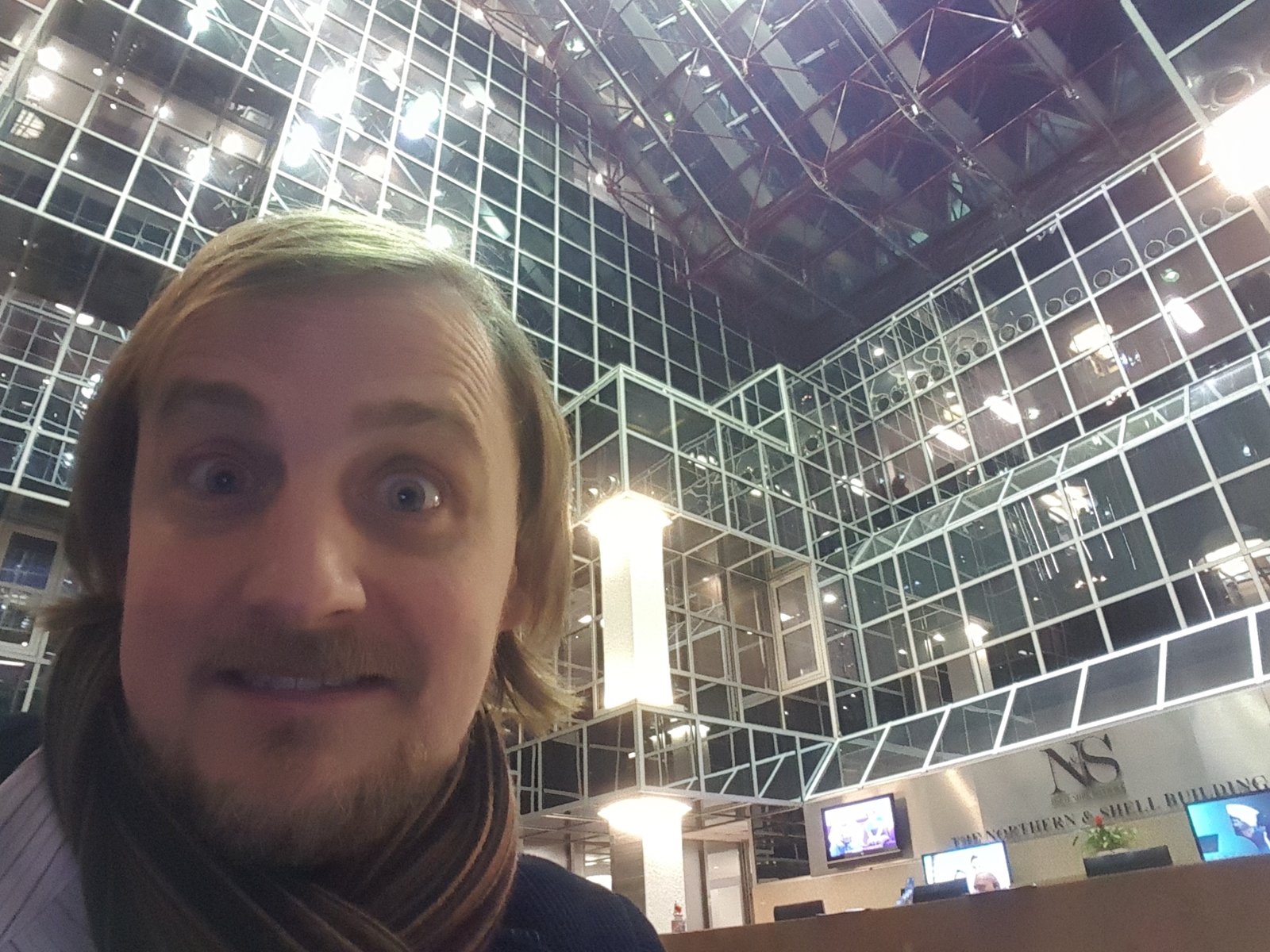
I have been lucky enough that there has always been another option, and I am still here, determined to make the most of where those options have brought me by seeking out those things in life that matter most to me. When I woke up on Tuesday morning, I never knew I’d end up on national television that day; but, looking farther back, nor did I ever know where my illness and the decisions regarding my treatment would take me. I’ll never know “what if…”, but that doesn’t matter – I’d rather focus on “what is…”.
And this news makes me smile.
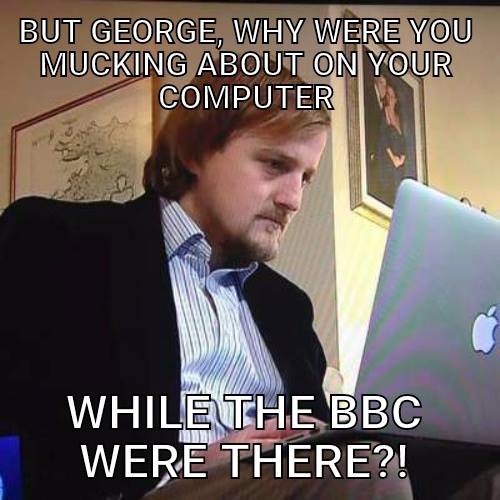

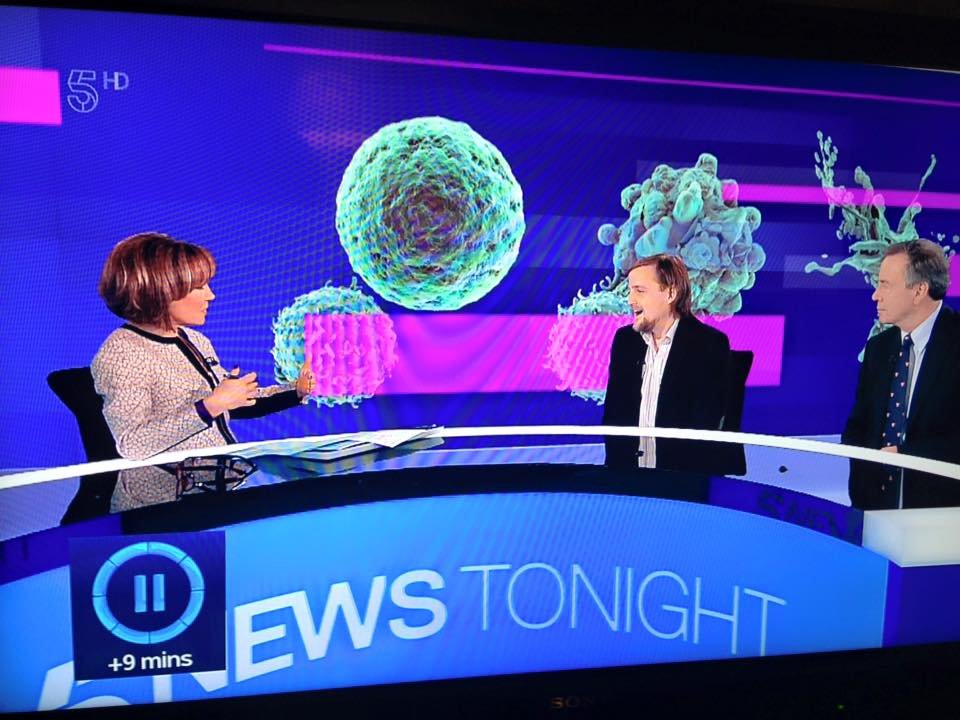
Well done George You were at the BBC with Prof J Gribben, my boss Keep flyin high. Am proud of you honey Laura
Sent from my iPhone
Laura – I wish I’d made the connection at the time!
I meant to email him after I wrote the blog post (to tell him the name of the trial that got me into remission – MARALL – as I’d forgotten at the time), so do share the post with him if he’s interested. Suffice to say I’m in awe of the wonderful work you’re doing.
Take care,
George
Congratulations and very well done! Dee
Thank you (belatedly), Dee!
On immunotherapy myself doing well. From JFK
That’s great to hear, John – hope you’re still doing well!
All the very best,
George